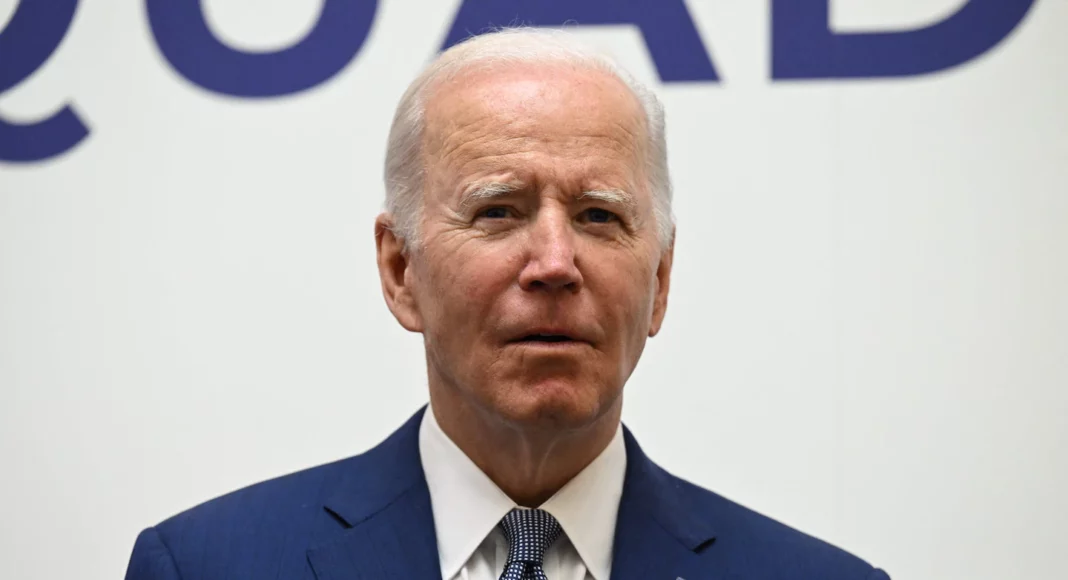Ειδήσεις Ελλάδα

Placeholder while article actions load
TOKYO — President Biden stressed Tuesday that his policy toward Taiwan had not changed, one day after forcefully pledging — as he has done before — that the United States would defend the island if it came under assault by neighboring China.
At a meeting here of leaders from the United States, India, Australia and Japan, Biden was asked to elaborate on his unequivocal remarks that were an apparent change to long-standing U.S. policy of deliberately staying unclear about what it would do in such a scenario, a principle known as “strategic ambiguity.”
Asked Tuesday whether that policy was dead, Biden responded: “No.” He emphasized that position again when asked whether he would send U.S. troops to the self-governing island if China invaded.
“The policy has not changed at all,” Biden said. “I stated that when I made my statement yesterday.”
Biden takes aggressive posture toward China on Asia trip
Both the president and a White House official had said Monday that Biden’s remarks did not represent a shift in U.S. policy, despite provoking immediate uproar from Beijing. This precise scenario — in which Biden promises to defend Taiwan militarily and his aides attempt to clarify — has played out before, such as during a CNN forum in October.
His comments Tuesday came during a meeting of the Quad, a partnership of influential Indo-Pacific democracies widely seen as a counterweight to China. The four nations came together in 2004 for relief efforts following the devastating Indian Ocean earthquake and tsunami and have met sporadically since, although the Biden administration has elevated the group’s importance.
After meeting jointly with the three other Quad leaders, Biden talked separately with Narendra Modi, the Indian prime minister, in a potentially complicated sit-down. India remains one of the most powerful outliers among the world’s largest democracies that have declined to condemn Russia for its invasion of Ukraine.
India has repeatedly refused to criticize Russia at venues including the United Nations, to the deep frustration of the Biden administration and other Western governments. Biden pointed to that awkwardness in March, noting that India was “somewhat shaky” on Russia, while others in the Quad had been “extremely strong” in denouncing Russian President Vladimir Putin’s aggression.
The Asian giant holds deep historical and strategic ties with Moscow, a friend reaching back to the Cold War. India’s military has purchased 85 percent of its existing weaponry from Russia, according to the Washington-based Stimson Center think tank. Some of India’s largest international investments involve Russian state-owned oil and gas firms, and since the start of the war this year, India has increased its imports of Russian oil.
In response to Western criticism, Indian officials have argued that they need to prioritize the country’s energy security and have pointed to Germany’s continued dependence on Russian gas.
Biden’s charm offensive seeks to bolster ties with South Korea, Indo-Pacific
On Tuesday, shortly before he met with Modi behind closed doors, Biden said the two men would discuss the “ongoing effects of Russia’s brutal and unjustified invasion of Ukraine and the effect it has on the entire global world order.”
“The U.S. and India are going to continue consulting closely on how to mitigate these negative effects,” Biden said. Speaking through an interpreter just after the U.S. president, Modi did not mention Russia in his brief opening comments.
Later, a White House readout of the meeting said only Biden “condemned Russia’s unjustifiable war against Ukraine,” although the two leaders jointly pledged to work on matters of humanitarian aid and rising energy and food prices. India’s readout of the meeting made no mention of Russia.
Earlier Tuesday, a senior administration official, speaking on the condition of anonymity to brief reporters, said Biden is aware India has “its own views” on Russia, and “the idea is to build on the commonalities.”
Other leaders in the Quad, too, carefully danced around the differing views toward Russia.
In a news conference Tuesday, Japanese Prime Minister Fumio Kishida said it was “only natural” for each country to weigh their own relationships when asked about India’s neutral stance toward Russian aggression. Kishida said despite the differences, the Quad members agree that cooperating on an array of regional matters is important.
“In an international situation, each country has its own historical developments as well as geographical situations. So even amongst like-mined countries, their positions may not agree fully,” Kishida said. “That is only natural.”
Gerry Shih in New Delhi contributed to this report.



